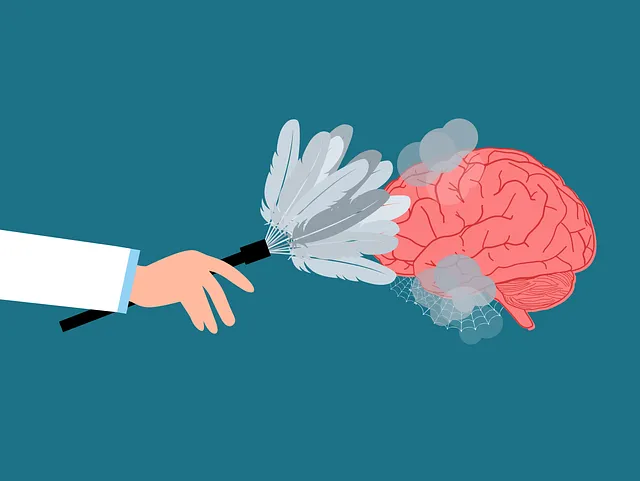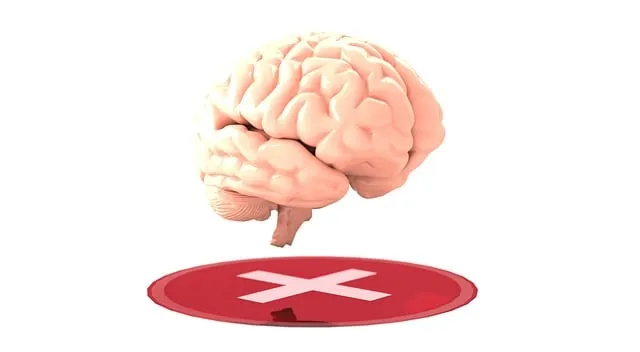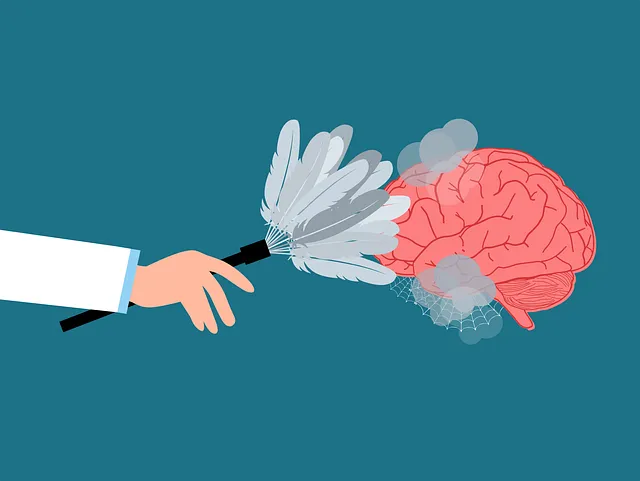Mood regulation is a critical aspect of mental health management, empowering individuals in Northglenn (where Kaiser provides inpatient care) to cope with life's difficulties and maintain emotional stability. By understanding mood triggers through comprehensive patient analysis, Kaiser offers tailored interventions like Stress Management Workshops. Their services leverage Cognitive Behavioral Techniques (CBT) for managing mood disorders and include Mindfulness and Meditation practices to enhance stress management. Adopting healthy lifestyle changes, building supportive communities, and cultivating inner strength through mindfulness contribute to emotional well-being, potentially reducing the need for inpatient care.
“Explore powerful mood regulation strategies at Northglenn’s Kaiser Inpatient Mental Health facility. This comprehensive guide delves into effective techniques for managing emotions, focusing on cognitive behavioral therapies, mindfulness practices, and lifestyle adjustments. By understanding individual triggers and patterns, patients can navigate their mental health journey with enhanced coping skills. Discover how these evidence-based methods foster stability and balance, offering a path to improved well-being in a supportive environment.”
- Understanding Mood Regulation and Its Significance
- Identifying Triggers and Patterns in Inpatient Mental Health Settings
- Cognitive Behavioral Techniques for Effective Mood Management
- Mindfulness and Meditation Practices for Calm and Balance
- Lifestyle Adjustments and Supportive Environment for Stabilized Moods
Understanding Mood Regulation and Its Significance

Understanding Mood Regulation and Its Significance
Mood regulation is a vital aspect of mental health management, enabling individuals to navigate life’s ups and downs effectively. It involves the strategies and skills that help us maintain emotional balance, cope with stress, and manage intense emotions. In today’s fast-paced world, where mental health awareness is on the rise, recognizing the importance of mood regulation cannot be overstated. This is especially true for communities like Northglenn, where access to quality mental health services, including inpatient care provided by Kaiser, plays a crucial role in supporting residents’ well-being.
The ability to regulate moods is essential for fostering resilience and promoting overall psychological health. It helps individuals make sense of their emotions, respond adaptively to challenging situations, and enhance their relationships. Given the prevalence of mental health concerns, healthcare providers in Northglenn, such as Kaiser, must be equipped with comprehensive training, like cultural competency programs, to offer effective support. This includes understanding the unique needs of diverse populations and implementing strategies like risk management planning for optimal patient care, ensuring everyone receives the assistance they need to lead fulfilling lives despite their mental health challenges.
Identifying Triggers and Patterns in Inpatient Mental Health Settings

Inpatient mental health settings offer a unique opportunity to delve into and identify triggers and patterns that contribute to emotional instability. Northglenn’s Kaiser facility, for example, prioritizes comprehensive patient care, including advanced strategies for mood regulation. By meticulously examining individual experiences, healthcare professionals can uncover recurring themes and stressors. This process involves analyzing the environment, relationships, and personal habits of patients, helping them recognize their unique triggers.
Understanding these patterns is a cornerstone in the Mental Wellness Podcast Series Production, where experts discuss various techniques to manage stress. Moreover, organizations like Kaiser leverage this knowledge to develop tailored interventions, such as Stress Management Workshops, ensuring that patients gain practical tools for coping with and preventing mood episodes. Through these initiatives, individuals can take charge of their mental wellness, fostering a sense of control and resilience in their journey towards recovery.
Cognitive Behavioral Techniques for Effective Mood Management

Cognitive Behavioral Techniques (CBT) are highly effective strategies for managing and regulating mood. This approach focuses on identifying and changing negative thought patterns and behaviors that contribute to poor mental health. CBT encourages individuals to challenge their distorted beliefs and replace them with more realistic and positive ones, thereby influencing their emotional state. For instance, someone experiencing depression might learn to recognize and reframe self-critical thoughts, which can help lift mood and increase feelings of optimism.
Northglenn’s Kaiser offers inpatient mental health services, providing a safe and structured environment for individuals to implement CBT techniques. Their programs often include Mental Wellness Coaching and Social Skills Training, alongside Conflict Resolution Techniques, to empower patients with the skills needed to navigate challenging situations and maintain emotional balance. These strategies can be life-changing, helping folks manage stress, anxiety, and depression effectively.
Mindfulness and Meditation Practices for Calm and Balance

In today’s fast-paced world, finding moments of calm and balance is essential for mental well-being, especially in places like Northglenn where Kaiser offers inpatient mental health services. Mindfulness and meditation practices have emerged as powerful tools to navigate the challenges of mental illness and reduce the stigma surrounding it. These ancient techniques encourage individuals to focus on the present moment, cultivating awareness of their thoughts, emotions, and bodily sensations without judgment.
By incorporating mindfulness into daily routines, folks can enhance their ability to manage stress. Meditation, a core practice, involves quieting the mind and observing thoughts as they arise. This simple yet profound act allows for better understanding of one’s mental processes and fosters positive thinking. In the context of Northglenn’s available resources like Kaiser’s inpatient programs, these practices serve as valuable supplementary tools in the journey towards overcoming mental health challenges and promoting a sense of calm amidst life’s storms.
Lifestyle Adjustments and Supportive Environment for Stabilized Moods

Maintaining a stable mood is a multifaceted endeavor, and lifestyle adjustments play a pivotal role in this process. Individuals in Northglenn, CO, fortunate enough to have access to resources like Kaiser’s inpatient mental health services can further optimize their well-being by adopting healthier habits. This includes regular physical activity, a balanced diet rich in nutrients that support brain health, and adequate sleep cycles. Such lifestyle changes not only stabilize moods but also enhance overall resilience against adverse emotional states.
Creating a supportive environment is equally crucial. This involves fostering connections within the community through programs like Kaiser’s Community Outreach initiatives or local mental wellness podcast series productions. Building a strong support network can significantly impact an individual’s ability to regulate their mood effectively. Furthermore, cultivating inner strength through practices such as mindfulness and meditation enables individuals to navigate life’s challenges with greater ease. These strategies work in harmony to create a holistic approach to mood regulation, potentially reducing the reliance on inpatient care when managed appropriately.
Inpatient mental health facilities, like those available at Kaiser in Northglenn, play a pivotal role in teaching individuals effective mood regulation strategies. By understanding triggers, employing cognitive behavioral techniques, adopting mindfulness practices, and making lifestyle adjustments, patients can gain valuable tools to stabilize their moods. These comprehensive approaches ensure that individuals leave inpatient care with enhanced emotional resilience, empowering them to navigate life’s challenges more effectively.






